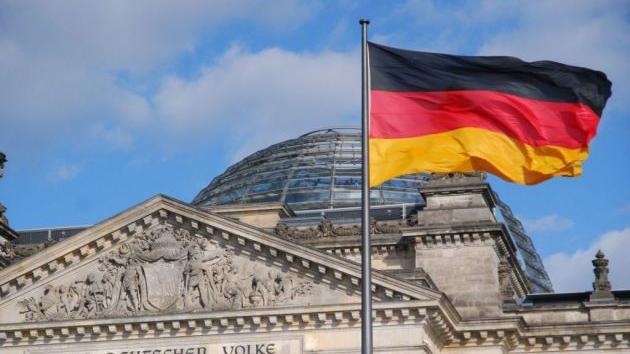AHK Srbija: Economic Cooperation with Belgrade Not to Change Following Election in Germany
Source: eKapija
 Sunday, 10.10.2021.
Sunday, 10.10.2021.
 12:43
12:43
 Sunday, 10.10.2021.
Sunday, 10.10.2021.
 12:43
12:43
Illustration (Photo: Edhar/shutterstock.com)

Frank Aletter, the CEO of AHK Srbija, said that the economic and business cooperation of Berlin and Belgrade would not change in the near future and that the foundation of the economic cooperation consisted of various trade agreements and programs. Furthermore, the process of integration into the EU also points to a clear path toward economic cooperation, AHK Srbija says in a press release.
– The likelihood is great that the new German government will require an increased engagement regarding the climate change and the issues of the environment, which will certainly have an impact on the economic cooperation as well. Since many German companies produce in Serbia for the EU market and many Serbian companies are integrated into the supply chains of German companies, the pressure to harmonize with environmental standards will increase. However, this is the opportunity to position Serbia as an investment destination close to the EU and an innovative partner that works on big challenges related to the climate change – Aletter said.
Simon Ilse, the director of the Belgrade office of the Heinrich Boell Foundation (Heinrich-Böll-Stiftung), said that, as things stand, if the so-called “traffic light coalition” was created in Germany, the principles of the German policy toward the Western Balkans regarding the expansion of the EU and the change of the borders would remain the same, but the tone would change. He added that it was to be expected for the German engagement to shift more to the issues of democratization and the rule of law.
– I see a great opportunity in the future relation of the energy and the trade policies in the Green Agenda for the Balkans. The Carbon Border Adjustment Mechanism (CBAM) that the EU has announced will prepare the way for the transition – Ilse said.
Norbert Beckmann-Dierkes, the director of the Serbia and Montenegro office of the Konrad Adenauer Foundation (Konrad-Adenauer-Stiftung), believes that Serbia and southeast Europe will also play an important role in the future German government, especially from the aspect of the European, economic and security policies.
– The critical assessment of the Berlin Process in the German media does not match the actual importance and the real results of the Berlin Process. The continuation of the Berlin Process format and the expansion to other levels, science, culture, as well as the further regional networking and deepening of the relations in the region and with the EU states are reasonable and goal-oriented steps – he said.
The panel discussion within the “Members Dinner” event was held under the aegis of Hotel Mona Plaza and the company Miele.
Companies:
 AHK Srbija
AHK Srbija
 MONA PLAZA d.o.o. Beograd
MONA PLAZA d.o.o. Beograd
 Miele d.o.o. Beograd
Miele d.o.o. Beograd
 Fondacija Heinrich Boell Berlin
Fondacija Heinrich Boell Berlin
 Fondacija Konrad Adenauer Beograd
Fondacija Konrad Adenauer Beograd
Tags:
German Serbian Chamber of Commerce
AHK Srbija
Heinrich Boell Foundation
Miele
Konrad Adenauer Foundation
Norbert Beckmann Dierkes
Simon Ilse
Frank Aletter
election
Western Balkans
relations
policy
Green Agenda
investments
Berlin Process
Hotel Mona Plaza
Comments
Your comment
Naš izbor
Most Important News
Full information is available only to commercial users-subscribers and it is necessary to log in.
Follow the news, tenders, grants, legal regulations and reports on our portal.
Registracija na eKapiji vam omogućava pristup potpunim informacijama i dnevnom biltenu
Naš dnevni ekonomski bilten će stizati na vašu mejl adresu krajem svakog radnog dana. Bilteni su personalizovani prema interesovanjima svakog korisnika zasebno,
uz konsultacije sa našim ekspertima.


 Izdanje Srbija
Izdanje Srbija Serbische Ausgabe
Serbische Ausgabe Izdanje BiH
Izdanje BiH Izdanje Crna Gora
Izdanje Crna Gora


 News
News








